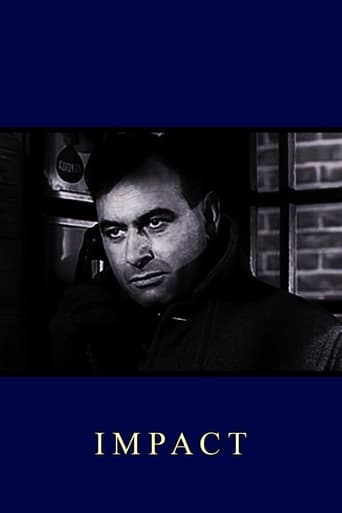

Perfectly adorable
... View MoreHighly Overrated But Still Good
... View MoreAbsolutely Fantastic
... View MoreIt isn't all that great, actually. Really cheesy and very predicable of how certain scenes are gonna turn play out. However, I guess that's the charm of it all, because I would consider this one of my guilty pleasures.
... View MoreA top journalist, Jack Moir (Conrad Philips), is framed for a train robbery by nightclub owner and Soho crime lord, The Duke (George Pastell), because he considers that he has become too interested in his activities in his newspaper columns and fears that it could arouse the interest of the police. Moir does time but, when he gets out, he vows to bring The Duke to book.An utterly routine and totally missable crime thriller from Britain's poverty row studio Butcher's Films. The Cinematograph Act 1927 stipulated that UK cinemas had to show a certain number of British made films. The result was what became known as the quota-quickies - cheaply and hastily made movies that earned themselves such a bad reputation that they gave our film industry a bad name. Yet, there were some exceptions that have become to be regarded as classics but, alas, this is not one of them. Its ultra-low budget is evident with its rickety sets - it clearly did not stretch far enough to shoot a train robbery sequence! - and never did an hour seem like an eternity as it is all chat and no interest. The film's brightest moments come from Ballard Berkeley as Moir's boss and Linda Marlowe as his girlfriend who offer energetic and likable performances in what little screen time they have. But, unfortunately, they are not given enough to do and any brief flicker of enthusiasm quickly evaporates.
... View MoreThis is a 1960s B movie short. Its a poor film which starts interestingly enough but quickly loses impact.It is low budget, inspires to be some type of American gangster flick and has some straightforward performances, s dicey script with more holes than a colander.It is rather surprising to see Ballard Berkeley better known as the Major in Fawlty Towers as a younger and a rather straight talking newspaper editor.Conrad Phillips plays Moir, an experienced crime reporter who has been pursuing a gangster known as the Duke. The Duke in retaliation fits him up for a train robbery and the police arrest him and he is sentenced to two years in jail. In jail Moir plots his revenge.I have big doubts how the police would think a well known crime reporter can suddenly get involved in a train robbery. As for the revenge plot where the climax takes place in a cold storage warehouse is underwhelming in its sheer hokeyness. I think the film-makers got bored as it suddenly ends.
... View More*SPOILERS* Note that the plot summary given by one earlier reviewer is wrong in almost every conceivable respect. Phillips is an experienced reporter who's been hounding nightclub owner/crook Pastell, who in retaliation frames him for a train robbery. Phillips does 20 months for the crime and, on leaving jail, with the help of his cellmate Rees and some powerful refrigeration equipment (and without the help of his ineffectual girlfriend Marlowe) forces Pastell to sign a confession to all his crimes.The script's no masterpiece but what really lets the movie down is the acting. Pastell is quite good and West, as his floozy, is perfectly adequate, but most of the rest are of amateur-theatrical standard.
... View More**ENDING SPOILER(ISH)**Second feature idiocy in which Phillips is an aspiring journalist who inconveniently finds himself accused of a train robbery. With the help of his girlfriend, several rusty cans of worms are opened on the tracks to proving himself innocent.The jury were also unanimous on Phillips' co-screenwriting ability it would seem, as he had not been given the chance to do so before this and was afforded even less chance to do so afterwards.
... View More